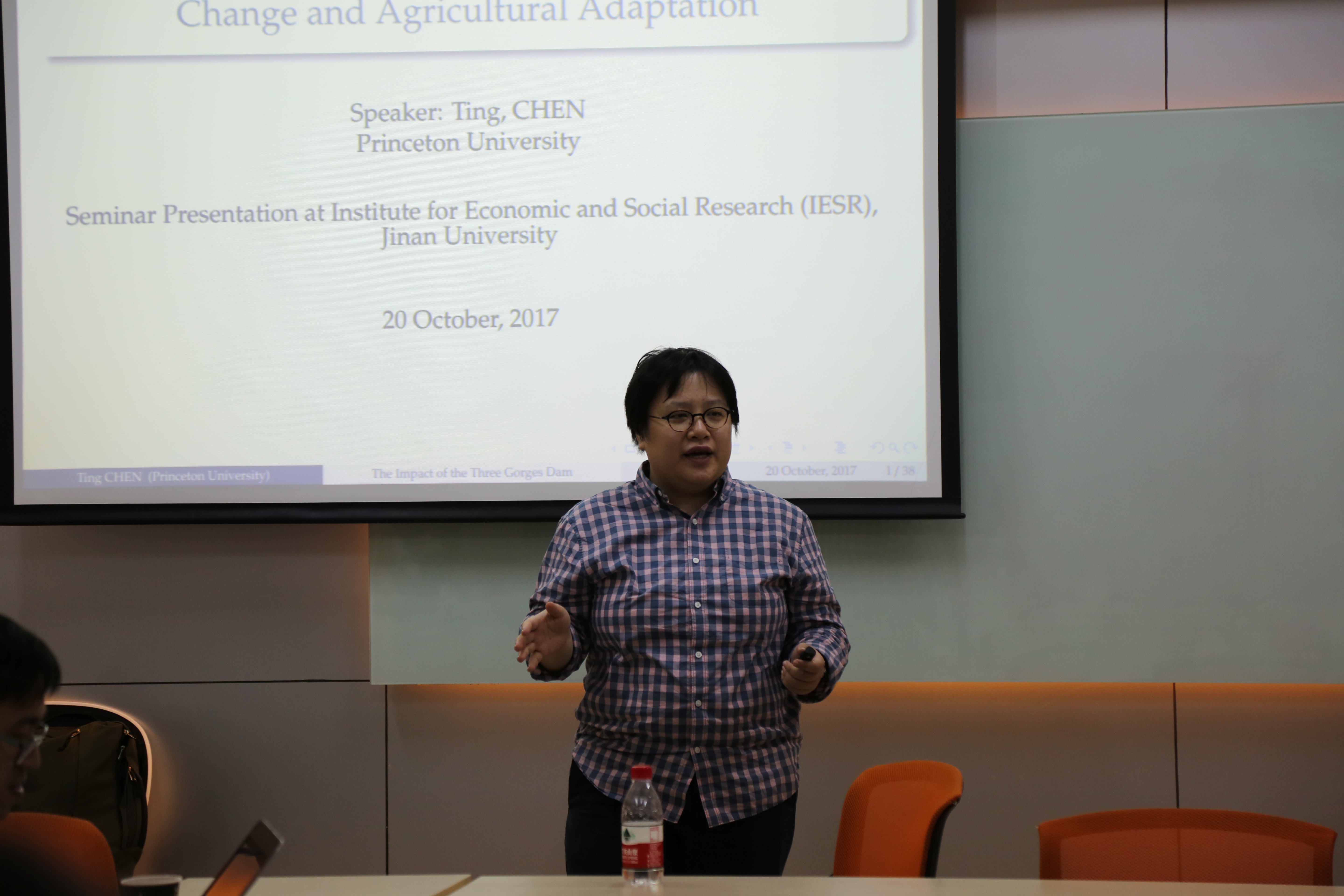2017年10月20日,普林斯顿大学的陈婷博士在中惠楼106室报告了题为“The Impact of the Three Gorges Dam on Climate Change and Agricultural Adaptation”的工作论文,吸引了大批师生到场聆听并参与讨论。

陈婷
Due to its immense size, the Three Gorges Dam is believed to change the water distribution among upstream and downstream regions and thus create long-run impact on precipitation and temperature. In this study, we use the initial impoundment in 2003 of the Dam as a natural experiment to study the long-run impact of climate change on agricultural adaptation. Using a grid-monthly weather data and difference-in-differences method, we first confirm that the initial impoundment indeed significantly reduces precipitation in the downstream area, while heightens the temperature in the upstream area within 250km radius closed to the Yangtze River. Further evidence from the Potential Evapotranspiration Index (PEI) suggests that the interrupt of water circle in the affected area is the key channel for the climate effect. Moreover, we confirm that the effect on precipitation is concentrated in the spring - the growing season of wheat - one major grain crop in China. We move on to test the farmers' adaption using the micro data on agricultural activities from the Rural Fixed Point Panel Survey between 1989 to 2013. We confirm negative impacts on yield, sowing areas and total output of wheat in the affected areas, but not to the rice - another major grain crop. As evidence of farmers’ adaptation, we find that farmers from the affected areas significantly increase the sowing areas of both corn and sweet potato. Both are more resistant to aridness. Finally, we find weak evidence of decrease in general agricultural activity in these areas, which suggests that switching from agricultural to non-agricultural activities could be the next interesting outcome to look at in the future research.
